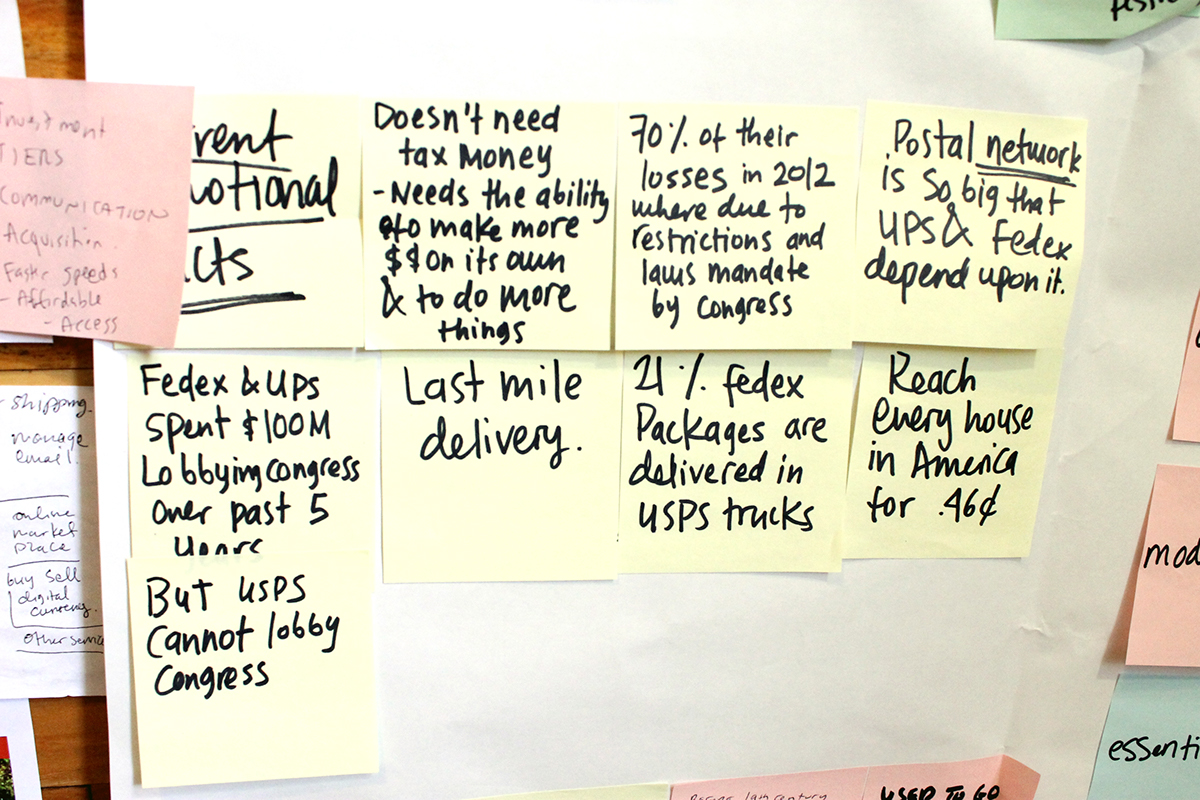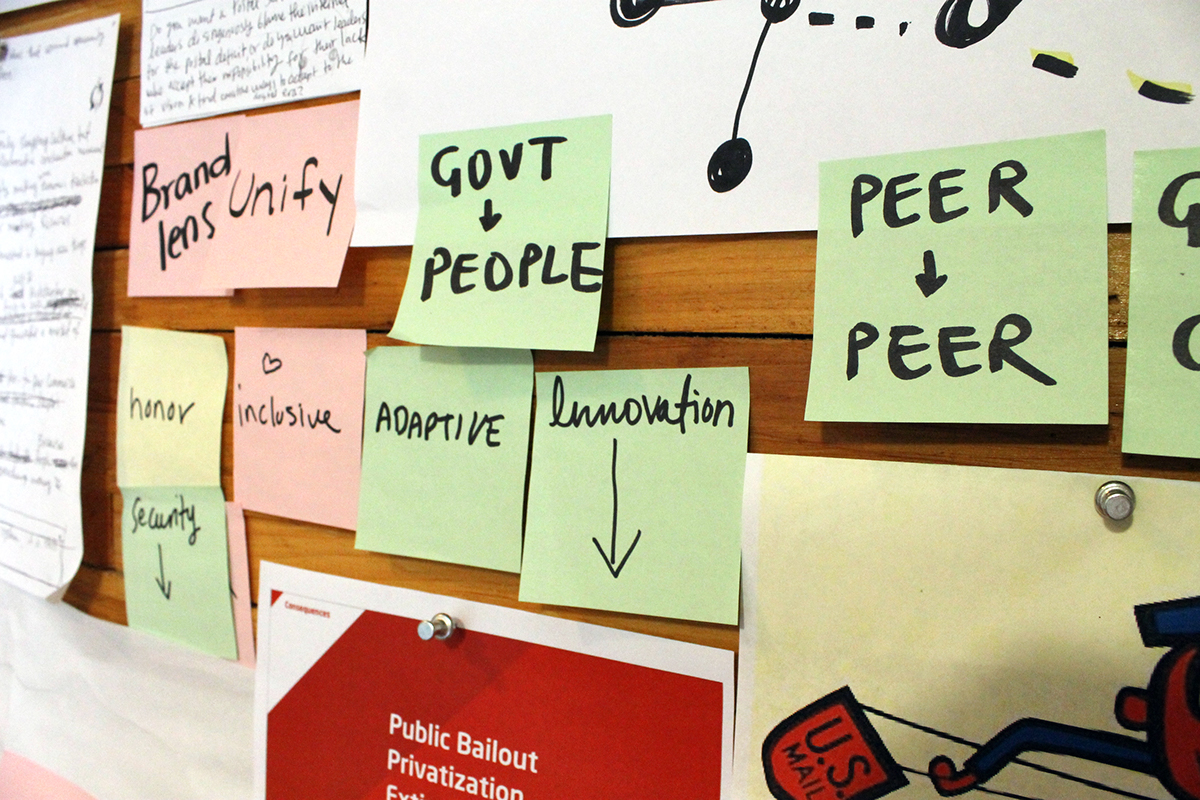Client: United States Postal Service
Chair: Debbie Millman
Scope of work: Presentation, Brand Strategy and Positioning, Communication Strategy, Identity Design, Visual Systems, Naming
The United States Postal Service brand has deep relevance, longevity and historical legacy but has not kept pace with culture. The brand must respect or convey a core human value or signify something important in our times. The thesis should add meaningful discourse to a cultural or global conversation.
Challenges: $5.5 billion annual retiree health benefits mandate, stifling future investments. Shorter Post Office hours, or even Post Offices closing. $41 billion net losses in the past 6 years. Main source of income comes from mail services, and mail volume is declining. Americans communicate more often through email, text, social media, than letters. Long lines. Constantly unmaintained. Confusing communications. Deteriorating infrastructure. Ever-increasing amount of junk mail. If the United States Postal Service does not change what they are doing they will either experience: public bailout, privatization, or extinction.
Final Deliverable: A thesis presentation was given at the SVA Theatre on July 23rd 2013 to SVA staff, faculty, mentors, alumni, and the public.
Approach: Tactile, community, security, omnipresent, access, historical.
Through research of the United States Postal Service, and research of current and future trends we discovered three insights.
1. Insight: The need for personal connection and community.Opportunity: The United States Postal Service interacts with every single American home and business on a daily basis.
2. Insight: Access is becoming more important than ownership.Opportunity: The United States Postal Service has an infrastructure that gives people access to goods and services across America.
3. Insight: Security, privacy, and trust are the biggest concerns that arise from collaborative consumption. Opportunity: Federal laws protecting the sanctity of U.S. mail make it a trusted, secure and reliable brand.
Strategy is to leverage three of the United States Postal Service’s attributes: security, community, and access to diversify a now mail dominant service model into a flexible service model. Where the universal service obligation of the Postal Service can provide Americans with better ways to communicate.
Our job is to make your world bigger. To enable connections. To support your dreams. To build a stronger nation. We are the USPS. Connecting the nation one person at a time.
Strategic Recommendations:
Allowing Americans to decide how they want mail delivered to them through: frequency, location, and specified senders.
Provide a secure digital identity to protect people’s anonymity and reputation.
Create a secure and efficient online marketplace, where people can sell, buy, and rent from each other. Letter carriers would be able to safely deliver items to people locally and nationwide.
Offer an escrow service for Americans allowing them to pay for goods or services online securely.
Every government outlet, such as DMV, IRS, student loans, emergency services, etc., can be accessed in one digital account.
Broadband internet access to every American. When the Post Office Department was formed with the Constitution the founding fathers believed every American had the right to communication, which then meant letters. Internet access today would continue the United States Postal Service’s obligation of ‘binding the nation together.’
Proposed name change from United States Postal Service, a limiting name which suggests only postal products and services, to something more widely encompassing. A name such as United States Progressive Services suggests a continuously positive forward movement.
Press: UnderConsideration Brand New














